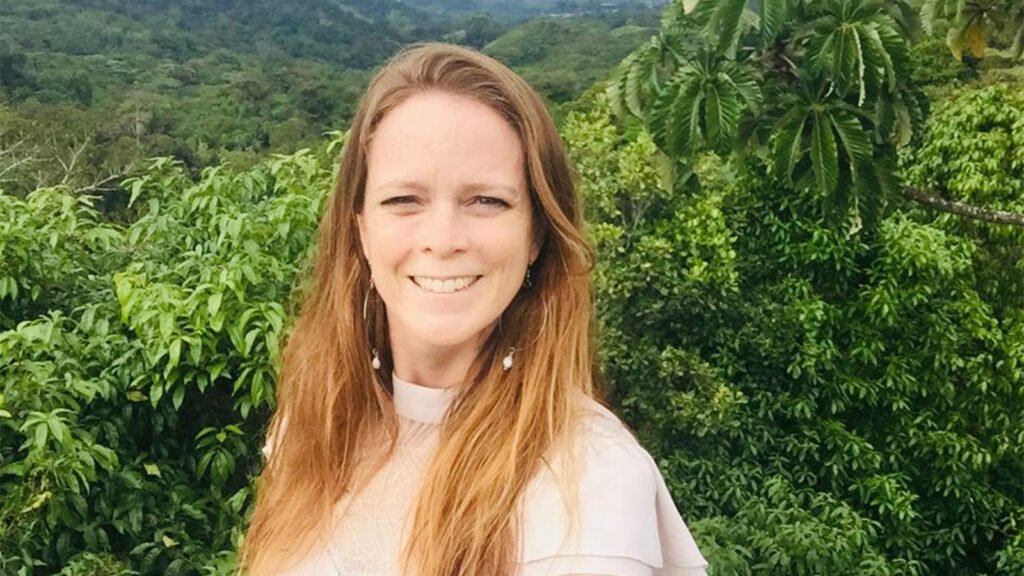“Make our world a smaller place by being in it,” proclaims the new global learning page on the Faculty of Health’s website, which looks to further the Faculty’s series commitment to advancing global engagement, one of the University Academic Plan’s six priorities for action.

Julie Hard, manager of international relations for the Faculty, views the page as “a hub for a diverse range of experiences such as student exchanges, faculty-led programs, internships, conferences and collaborative initiatives.”
“When the site launched, we wanted to drive people to a one-stop shop: one place where students, faculty and the community could see themselves and how to work together to increase global engagement related to health,” adds Hard. “The global learning site provides a menu of opportunities for faculty and students, who can build global experience into their courses and their own learning journeys.”
Now, there’s no need to hunt through multiple pages on the York website; not only does the Faculty of Health showcase relevant global learning opportunities in one place, it provides information about scholarships and testimonials from students who have dipped their toes in international waters and found the opportunities to be very stimulating.
Among the interesting global learning opportunities the website highlights are:
Faculty Bootcamp
To encourage faculty members to offer global learning opportunities for health students, Hard runs a Faculty Bootcamp that offers a chance for faculty members to experience education in a global setting so they can readily understand the context and the available resources and can develop their own study abroad courses. Faculty members apply to attend a week-long experience and become students themselves, all while considering how they would lead a course in the designated setting. Hard usually leads an annual bootcamp at the Las Nubes EcoCampus in Costa Rica, home to numerous York study abroad courses, and is considering holding a similar session in Ghana, both places where the Faculty wants to enhance its strategic partnerships.
“Faculty members have to have an idea about what they might teach and, if selected, go global with a mindset geared toward building a learning experience based on available resources,” Hard said. “Faculty members are introduced to community partners, educational programs, local businesses, and significant historical and cultural experiences that are relevant to proposed courses. They connect with other academic institutions with similar or complementary programs so they can build on York partnerships or create new ones.”
FLIP for a global experience
Faculty of Health students have always had myriad opportunities to gain global experience through general-interest study abroad programs run by York International or by University partners. Now, there are new health courses being offered abroad, called Faculty-Led International Programs (FLIPs). These courses, running from two to six weeks, are developed and led by professors in the Faculty. Registration for the two FLIPs scheduled for the Winter 2024 term quickly filled up.
One of the new FLIPs will take place during Reading Week in February at the Las Nubes EcoCampus. Adrienne Perry, a professor in the Department of Psychology, created a course that uses an environmental psychology lens to examine people’s thoughts, feelings, attitudes, motivation, resistance and behaviour in relation to environmental factors.
Jessica Vorstermans, an assistant professor of critical disability studies in the School of Health Policy & Management, is leading a two-week FLIP in Cuba in late April. Her course, Experience Cuba: Enacting the human right to health and health equity, demonstrates that these concepts are the predictable outcome of the ideological foundation of Cuban public policy, embedded in the socialist character of the Cuban state. Vorstermans will be working with faculty from the Universidad de Holguín, one of York University’s new partner institutions.
Student enthusiasm for global learning
Dylan Alega, a fourth-year student in the specialized honours psychology program, is one of those students who can speak about the benefits of studying abroad first-hand. Alega took the 12-day Community Psychology course offered at York University’s Las Nubes EcoCampus in Costa Rica in summer 2023.
Alega, a Filipino who recently immigrated to Canada after living in Singapore, found that the course struck a real chord. As an immigrant, he found that many of his other psychology courses didn’t represent his own experiences and he found it hard to relate. His Costa Rican experience “was more representative of my own experience and it was cool that an alternative exists,” he said.
“The highlight for me was visiting Indigenous communities in the struggle for their land. It got you out of your comfort zone regarding your world view in general.”
He also enjoyed the opportunity to visit a Montessori school operated by El Salvadorean war refugees and Longo Mai, Costa Rica, a co-op with the goal of moving away from capitalism to become self-sustaining.
“Costa Rica and the Community Psychology course have reoriented my path,” Alega said. “I want to work with marginalized communities who don’t have access to the usual mental health services, such as immigrant communities.”
In fact, he and his fellow students were so taken with their Las Nubes experience that they applied to the Bold Ideas program for a grant to host a panel discussion called “Crossing Boundaries in Costa Rica.” Held in November, this session focused on the study abroad experience, its benefits, challenges, highlights and lessons learned.
“We did a lot in 12 days, and this gave us the opportunity to reminisce and reflect,” Alega said. “It [the course in Costa Rica] was a once-in-a-lifetime experience.”
For Hard, who attended the student-led session, it was gratifying to see the impact of the Faculty’s Global Learning program on students.
“We want to provide opportunities to learn about various aspects of health in different contexts,” she said.
To meet students’ needs in programming, Hard will use the global learning website to host an annual Grow Global Survey that will allow the Faculty to assess student needs, interests and barriers as they plan for a future of advancing global engagement.


